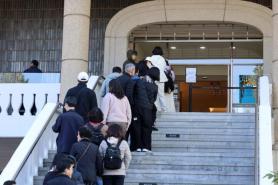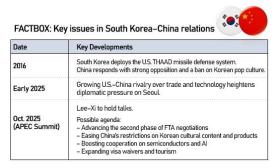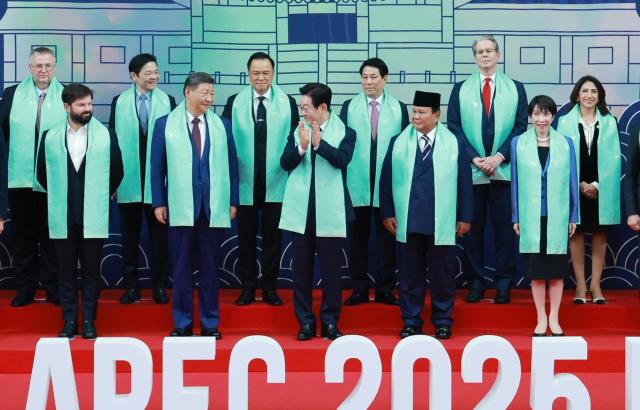
GYEONGJU, November 01 (AJP) - South Korea on Saturday successfully wrapped up the 2025 APEC Summit in Gyeongju, securing major diplomatic, economic, and security wins while ushering regional economies toward a rare consensus on an AI-driven economic roadmap, a non-protectionist community, and the recognition of cultural creation as a regional growth engine — underscoring its K-culture power.
President Lee Jae Myung declared the adoption of the Gyeongju Declaration, outlining a shared vision among the 21 member economies for an open, dynamic, peaceful, and innovative community with long-term priorities across trade, digital transformation, climate action, and inclusive economic development.
For the first time in APEC’s history, the declaration acknowledges the cultural-creation and content industry as a regional growth engine, a move expected to inject new momentum into Asia’s expanding cultural economy, including Korea’s global K-culture boom.
The document also establishes principles for safe and trustworthy AI development, cross-border data cooperation, and equitable sharing of AI-driven economic benefits.
In another first, APEC formally recognized demographic challenges — low birth rates, labor shortages, and rapid aging — as core regional issues. The demographic framework promotes cooperation on workforce mobility, family policies, and social safety-net innovation. President Lee emphasized that the trio of outcome documents together constitute “a new operating system for peace and prosperity in the Asia-Pacific.”
The summit opened with Lee’s keynote at the APEC CEO Summit, where he warned against rising protectionism and urged member economies to restore APEC’s founding principles of openness and inclusiveness. Chairing the leaders’ sessions at the Gyeongju Hilton from Oct. 31 to Nov. 1, Lee guided discussions on artificial intelligence, digital transformation, and the demographic headwinds confronting the region.
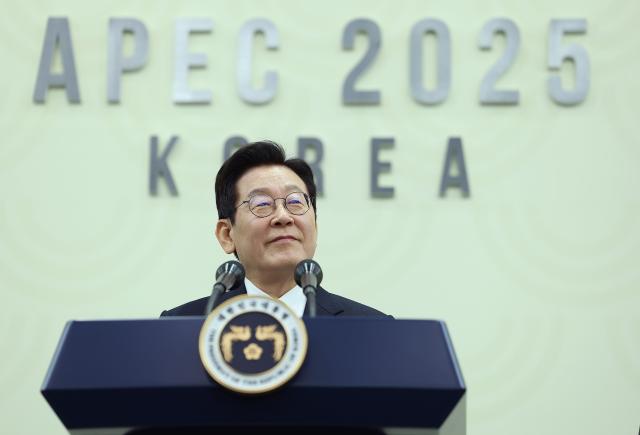
For President Lee, the collection of documents represents the most meaningful update to APEC’s cooperative architecture since the 2005 Busan Roadmap, another milestone under South Korean leadership. He said the Gyeongju Declaration has “restored cooperation among APEC members,” reaffirming multilateralism at a time of deep geopolitical divides.
In his first hosting of a multinational summit event, Lee secured breakthroughs in long-stalled tariff negotiations with the United States, won Washington’s approval for nuclear-powered submarine construction, and clinched multibillion-dollar investment commitments that strengthen South Korea’s role in the global AI race.
Lee held bilateral meetings with leaders from Japan, the IMF, New Zealand, Vietnam, the UAE, Indonesia, Chile, Canada, Thailand, the Philippines, and Australia. In talks with Japanese Prime Minister Sanae Takaichi, the two reaffirmed shuttle diplomacy and agreed to stabilize forward-looking cooperation.
Economic gains complemented diplomatic achievements. Lee reached an agreement with Amazon Web Services to build large-scale AI data centers in Incheon and Gyeonggi Province by 2031, backed by more than $5 billion in investment. He also helped to arrange the purchase of 260,000 Nvidia high-performance GPUs, with a national target of expanding the total to 300,000 by 2030 — positioning South Korea as the world’s third-largest holder of advanced GPUs, behind the United States and China.
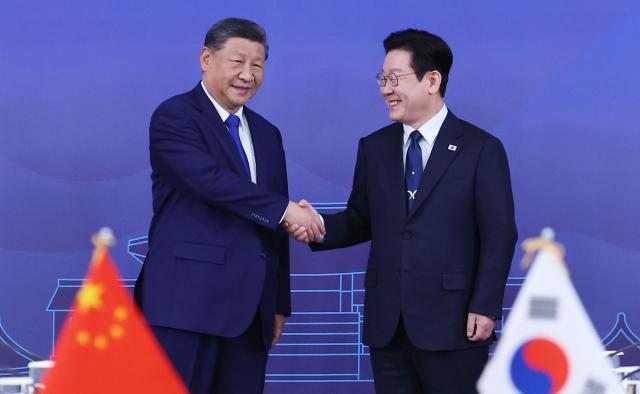
Capping the momentum of the APEC summit, President Lee held his first summit with Chinese President Xi Jinping in Gyeongju — marking Xi’s first state visit to South Korea in 11 years and signaling renewed engagement between the two countries. The nearly two-hour meeting focused on restoring strategic communication and reopening dialogue channels with North Korea.
“I hope South Korea and China can strengthen strategic communication to restart talks with North Korea,” Lee said, welcoming China’s recent high-level exchanges with Pyongyang as “positive momentum” for diplomacy. Xi expressed a strong willingness to deepen engagement with Seoul, describing South Korea as “an indispensable partner” and congratulating the country on hosting a successful APEC summit.
The two leaders signed seven memorandums of understanding, including a joint economic cooperation plan for 2026–2030, an agreement on combating cybercrime, and frameworks for collaboration in the silver economy, innovation partnerships, and trade in services. Officials from both sides described the agreements as pragmatic steps toward stabilizing a relationship that had drifted amid geopolitical tensions.
Following the summit, Lee and Xi attended a dinner featuring a blend of Korean and Chinese cuisine, symbolizing harmony and signaling readiness to usher in a more stable phase of bilateral relations.
With the Gyeongju Declaration, the Lee–Xi summit, and associated initiatives, the 2025 APEC Summit marked a defining moment for South Korea’s global leadership — one that strengthened its diplomatic leverage, expanded security partnerships, and solidified its position as a central player in the world’s AI-driven economic future.
* This article, published by Aju Business Daily, was translated by AI and edited by AJP.
Copyright ⓒ Aju Press All rights reserved.


